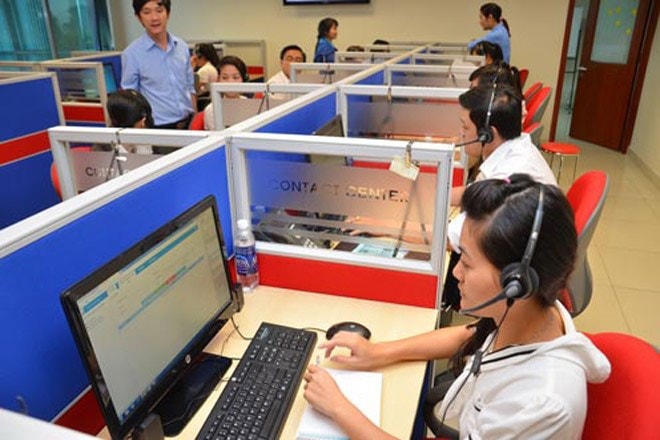No more "uncle - nephew" in public office!
The above statement was made by Deputy Minister of Home Affairs Tran Anh Tuan, when talking about standardizing office culture - one of the projects that the Ministry of Home Affairs will deploy in the coming time to issue a "hard" decree on this issue. Mr. Tran Anh Tuan also discussed frankly a number of other issues surrounding the draft circulars and decrees developed by the Ministry of Home Affairs that have been causing a stir in public opinion in recent times.
 |
| The project on standard office culture will have detailed regulations on every form of address, dress code, and even handshake... Illustrative photo |
Deputy Minister Tran Anh Tuan said: In the near future, we will organize seminars on "Office Culture" to have a decree on this issue, because for civil servants in the office, there are issues that seem simple but are cultural. For example, when speaking in a meeting, you must stand up, not sit; how to shake hands and greet each other; how to address each other in working relationships appropriately, because "uncle-niece, uncle-niece" in the office is not appropriate; or whether women are allowed to wear skirts, how long should the skirts be... In general, public activities taking place in the office are carried out in a cultured manner, which also reflects the quality of the team of cadres and civil servants.
The online community is debating whether specific regulations should be issued regarding napping at work - what is your opinion?
- In my opinion, when discussing this issue, we also need to have a scientific perspective, for example, we need to pay attention to factors of culture, customs, climate, soil, labor organization in each industry, each field... for people who work with their minds, a nap, even though short, is very important, so, in my opinion, depending on the nature of the work, depending on each specific condition, we should regulate flexibly, but there should not be "hard" regulations on this. If we decide to regulate, we need to study the specific situation of each country, we should not imitate mechanically like that, we need to be serious and scientific when researching the issue of "nap" to suit people, culture, climate and working conditions in Vietnam.
The draft decree stipulates standards for management positions of civil servants, in which the deputy minister level must be able to use at least one common foreign language at a high level of level 6 or higher. Is this "too much" compared to the current common level, sir?
- This is the initial draft at the expert level sent to solicit opinions from ministries, branches, and localities, posted on the website to solicit public opinions, and then will be compiled to absorb, edit, and perfect. In the context of international integration, in the standards for recruiting civil servants, there must also be a common foreign language. In case you cannot use a foreign language but can use an ethnic minority language to serve the work, working in mountainous, remote, and isolated areas, that is also fine. Currently, the draft is still in the process of being built, through discussion and comments from everyone, if the regulations are found to be too high, not close and suitable to reality, then they must be absorbed and perfected. The Ministry of Home Affairs will organize many seminars to discuss. Regarding foreign language standards, the Ministry of Home Affairs will discuss and get opinions from the Ministry of Education and Training as well as other relevant agencies so that the regulations on foreign language standards are suitable to current practical conditions as well as the development requirements of the country.
What is your opinion on the "must have patriotism" standard for officials and civil servants?
- All Vietnamese people are patriotic. The way each person expresses patriotism is different. The standards related to patriotism and dedication to serving the people are inherited from the current regulations of the Party and the State. The verification of patriotism of cadres and civil servants, especially for leading and managing cadres and civil servants, can be verified. Such verification is carried out through criteria such as: Responsibility in public service activities; contributions and achievements in work; dedication in resolving requests and demands of the people, not causing trouble, harassment, negativity in the process of performing public duties... Patriotism is essentially also a content of public service ethics that any cadre or civil servant must have.
Thank you, Deputy Minister!
According to Laodong.com.vn






